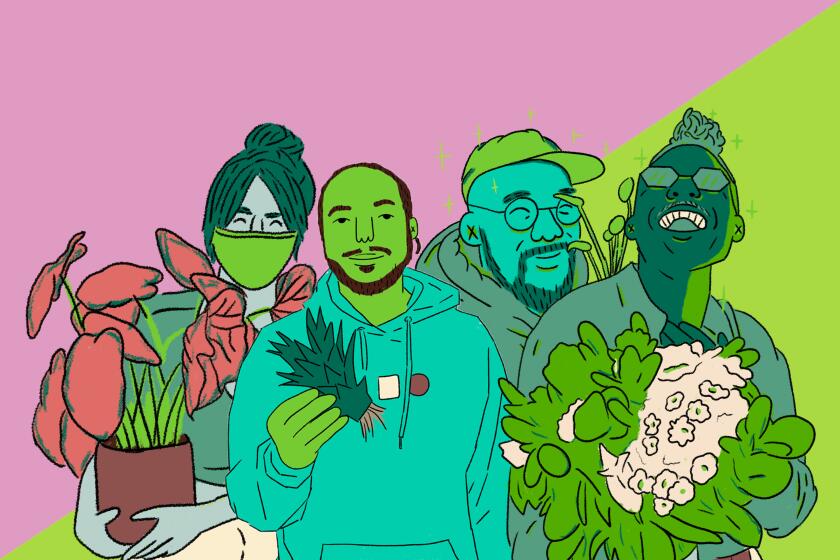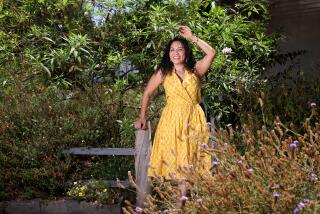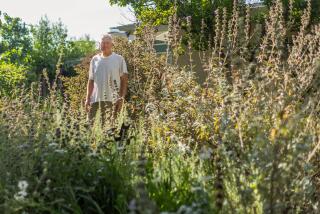This L.A. music producer is obsessed with houseplants: See how they amplify his work
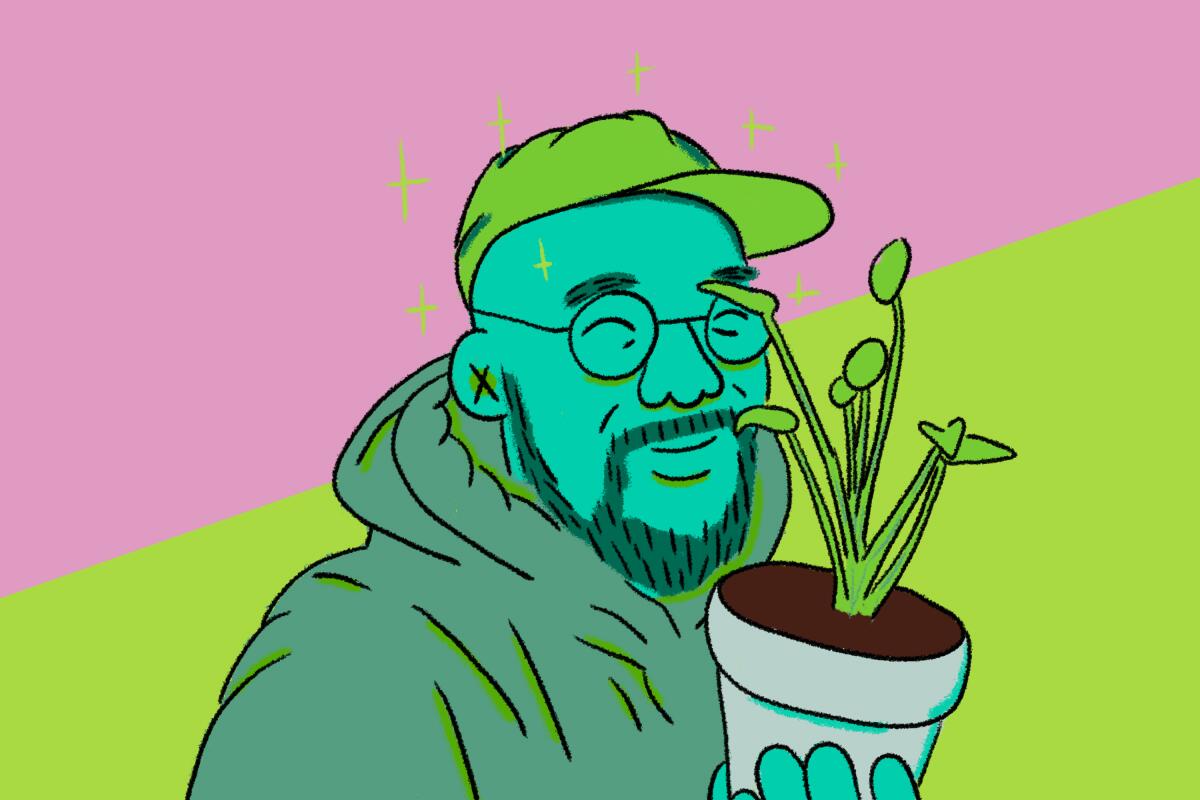
- Share via
While watching a Buzzfeed fashion video on six Japanese street fashions that were meant to blow my mind, what really blew my mind were the tunes. The background music exuded a level of spacy intimacy that made my chest feel light while also giving off a nostalgic vibe reminiscent of childhood days spent at the beach building sandcastles. I had to check the credits: Mark Redito.
Redito is an L.A.-based electronic music producer who. it turns out, is also the proud plant parent to more than 40 houseplants. He visually couples his earthy soothing sound with heavy plant imagery, from short snippets of him tenderly caring for plants to abstract videos of 3-D modeled flora. Redito’s aesthetic is the seamless marriage between the ambient digital world and a tangible natural ecosystem. You can find short teaser videos of thumping tracks playing over footage of sped-up plant growth and gardens, photographs of technology blended with nature, and updates of his own garden developments on his Instagram account @markredito.
Originally from Manila, Redito moved to L.A. in 2008. He became a full-time producer in 2013 and released his full-length album “Desire.” Plants have a calming influence in Redito’s life, which he says he tries to emulate when creating music. We interviewed him as part of Plant PPL, our new series about people of color in the plant world. If you have any suggestions for PPL to include in our series, tag us on Instagram @latimesplants. This interview has been lightly edited for length and clarity.
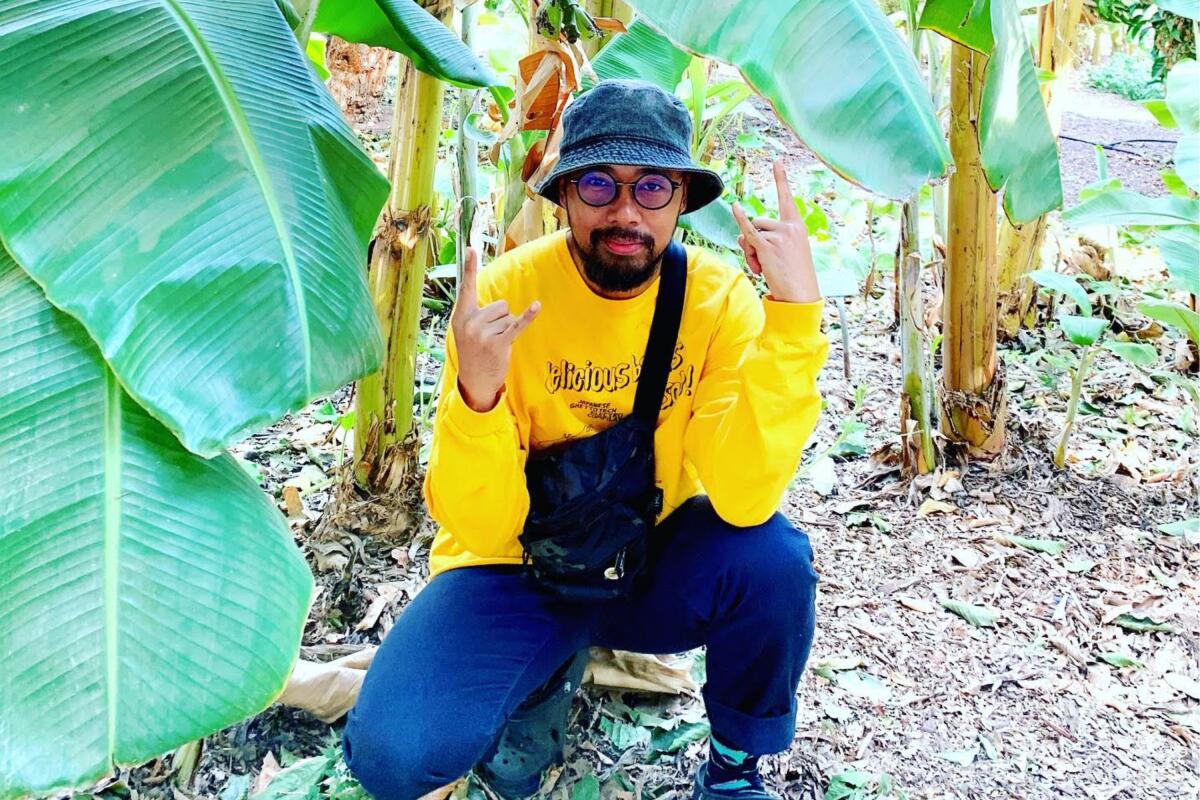
How does gardening help you during our current social climate?
In this age of quarantine and global uncertainty, gardening acts as a personal mindfulness practice for me. That, along with meditation and journaling, helps me center myself and gives me a sense of structure to my days and weeks. Mindfulness practice sounds passive on the surface, but it’s what generates growth, intentionality and movement in me, especially in times of instability.
Gardening also helps me to remember that there is a thriving world outside my own human concerns. It reminds me of our interconnectedness to the earth and with each other. The soil with all of its organic nutrients is what nourishes a plant throughout its life. Soil is also where we’ll all end up someday. It’s the natural cycle of life. Growth and decay. It’s a humbling concept to internalize. We are not going to be here forever. What would we like to propagate in this world?
In our Plant PPL series, we interview people of color in the plant world, including plantfluencers, plant stylists, floral artists, enthusiasts, experts and garden store owners.
How do you incorporate your gardening into your music?
The calmness and peace I find in gardening or being in nature is inspiring to me, and I want to pursue that same spirit in the way that I make my music. My hope is that when people listen to my work, they would be inspired to go outside and experience nature or start their own garden. My upcoming album to be released this summer, “Natural Habitat,” is all about that — the interconnectedness and innate connection we have with nature and with plants.
What kind of response have you received?
My friends, family and followers are all supportive of it. I’ve learned that there are a lot of people who are plant parents like me. I’ve met new plant friends and have been connected to the bigger gardening community in the process.
What’s your best tip for gardeners and new plant parents?
Ease into it and remember to take it slow. When I started getting into plants, my collection grew from five plants to about 30 in a month. As much as I enjoyed having plants and taking care of them, it was a lot of work for one guy to water and tend to 30-plus plants on one Saturday morning.
I would suggest starting with one plant and learning how to take care of it. Once you get a feel for things, expand slowly from there. Gardening can be a rich and immersive project. It can be overwhelming to learn everything all at once. Starting with one plant makes things easier and more enjoyable in my opinion because the attention you put into it will probably set you up for longer-term success.
When did you start gardening?
I credit my wife for getting me into plants. Six years ago she got us a golden pothos for our apartment. Prior to that I always thought I had a black thumb. The pothos was the first plant I maintained, and it was easy to care for because it was virtually unkillable. It eventually grew so big that it took over our whole bookcase. Around 2018 is when I started to grow our collection. Currently, we have roughly 30-40 houseplants scattered throughout our apartment, ranging from philodendrons to alocasias to fiddle-leaf figs. Last year I explored edible gardening and started a small container garden in our back patio where I’m currently growing herbs, garlic, onions and lemons.
Why did you incorporate it into your aesthetic?
As an artist obsessed with plants, it’s natural for plants to seep into my work. I find so much inspiration from them not only from a visual aesthetic standpoint but also from a metaphorical creative standpoint. We think of plants as static organisms, but they are really living and generative powerhouses. A few takeaways I’ve learned from being a gardener is that everything starts small. Plants start from seeds, leaves start from little buds. And with care and a little time, a plant will grow into a good size; it will grow into itself. I see that as a metaphor for starting any meaningful art project or community. Start small and nurture that with patience and observation, tweaking as you go, always pointing towards the light.
In our Plant PPL series, we interview people of color in the plant world, including plantfluencers, plant stylists, floral artists, enthusiasts, experts and garden store owners.
Tell us about Likido, the event series you started.
We started Likido in 2016 in Los Angeles. During that time it was a small gathering at a DIY venue with a bunch of my friends. I noticed that the electronic music world was heavily represented by straight white men. I wanted to put a spotlight on marginalized artists — people of color, women and LGBTQIA+. We wanted to offer a space for people to feel safe and enjoy themselves regardless of their background. I am surrounded by so much talent from these communities, and I wanted people to know that we existed and that we were part of the scene. I’m grateful for the overwhelming support we had over the years. Likido is an ever-evolving project.
Where do you buy your plants?
I typically buy my plants from my local nursery. If I’m looking for something a little rare, I go online, mostly Etsy or eBay.
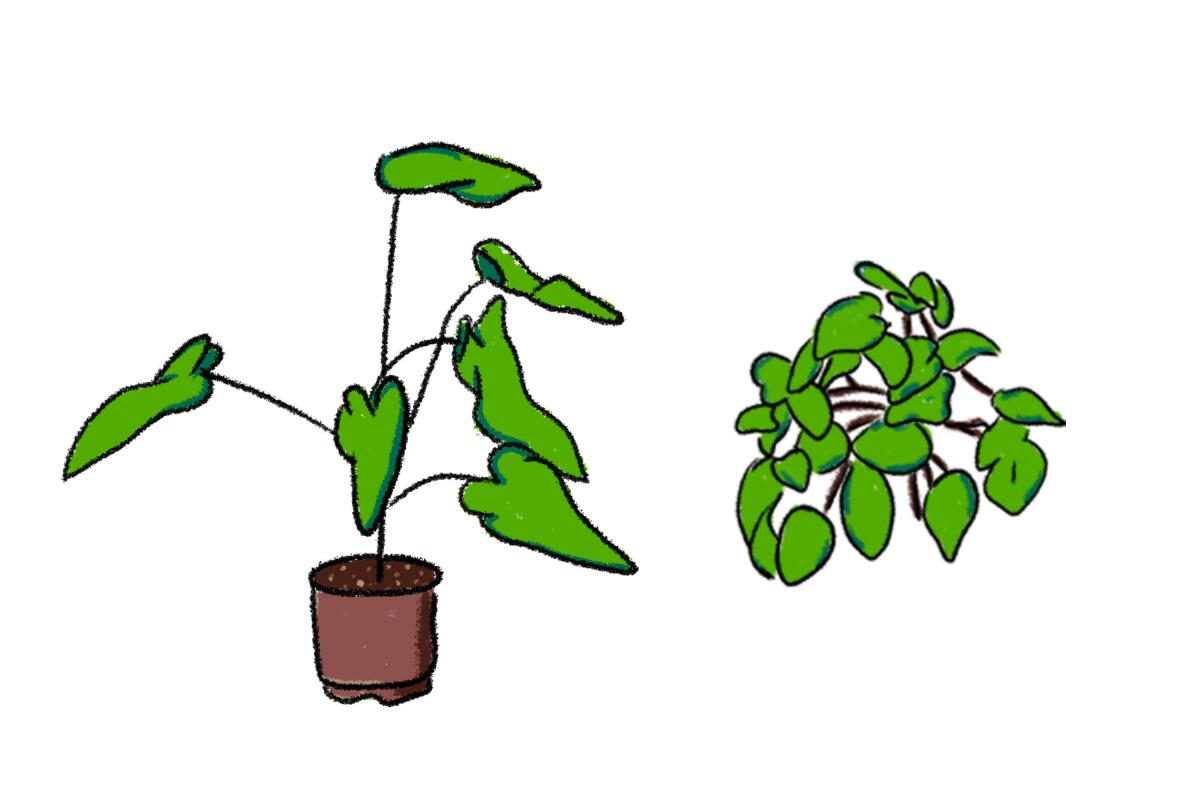
What’s your favorite plant?
I have many favorites! Right now I like philodendrons and pothos. Both are easy to maintain as long as you have the right conditions. They’re pretty hardy as well. They are good beginner plants to learn from. They’re easy to propagate, available at most nurseries, and they look really cool.
More to Read
Sign up for The Wild
We’ll help you find the best places to hike, bike and run, as well as the perfect silent spots for meditation and yoga.
You may occasionally receive promotional content from the Los Angeles Times.
